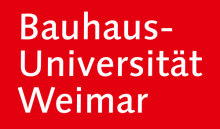Media Ecologies (Englischsprachig)
Media Ecologies (Englischsprachig)
MA
On the one hand, it opens up the possibility of understanding media in the sense of ecologies, i.e. not simply as individual media (radio, television, computers, etc.), but also in terms of media networks and milieus. On the other hand, it explores the fact that ecological knowledge, ecological awareness and ecological perception are always based on media-related and mediatised matters, i.e. it demonstrates that it is “the” media that make the problem of the environment recognisable as such in the first place – from photographs of the Blue Planet, by way of maps, graphs and curves, to computer models of climate development.
Studieninhalte:
Core modules
- Perspectives on Media Ecologies (basic module): introduction to core questions and methods
- Project modules: students work in interdisciplinary teams on subjects such as Digital Environments, Planetary Media und Archive Ecologies.
- Compulsory elective and elective modules: individual specialisation via modules from other university Faculties and Departments, including Computer Science and Civil and Environmental Engineering
- Master’s module: completion and defence of Master’s thesis in English, comprising a total of 18 ECTS ((European Credit Transfer System) points, including accompanying colloquium
Ablauf:
The standard study period of the consecutive English-language Master’s programme in Media Ecologies is four semesters. The programme comprises a total of 120 ECTS (European Credit Transfer System) points.
Karrieremöglichkeiten:
Graduates of the Master’s degree programme in Media Ecologies are outstandingly well-prepared for careers requiring a high degree of involvement in the academic, cultural and business fields, for example:
- research and tuition in the fields of Media Ecology or Media Studies, for example as part of a doctorate/PhD programme
- curatorial and editorial work in museums, archives, and other cultural institutions
- design of entertainment and academic media programmes in the museum and exhibition sector
- conceptual planning and organisational work in public and private institutions and businesses
Studienbeginn:
WS
Dauer des Studiengangs:
4 Semester
Besonderheiten:
The teaching of the Master’s degree programme in Media Ecologies, which is taught in English, is dominated by a culture of open-minded thinking and characterised by original and unconventional approaches and methods in which group work, film essays, excursions, e-learning and a lively, international culture of debate and discussion all play a vital part.
Typ:
Einfach
Art Zulassungsverfahren:
Bachelor of Arts degree in Media Culture or Media Studies, or an officially recognised first university degree qualifying for entry to a profession in a relevant subject, with a final grade of at least 2.3
Letter of motivation (in English) of approximately 1-2 pages. This should include an overview of the applicant’s previous academic education and relevant professional/practical training, as well as a summary of their future (research) goals with reference to the focal points of the programme.
Proof of English-language proficiency of at least B2 level as set out by the Common European Framework of Reference for Languages (CEFR), for example IELTS or TOEFL
a) Proof of native language skills (acquisition of a higher education entrance qualification or a first professional qualification in an English-speaking country) or
b) Proof based on one of the following certificates: IELTS band 6.5 or better; TOEFL Internet-based Score 85 or better; Cambridge Certif. (B2 First (FCE)) or equiv
Website:
Studienberatung:
Logo:

Letztes Update:
04/16/2025 - 15:49